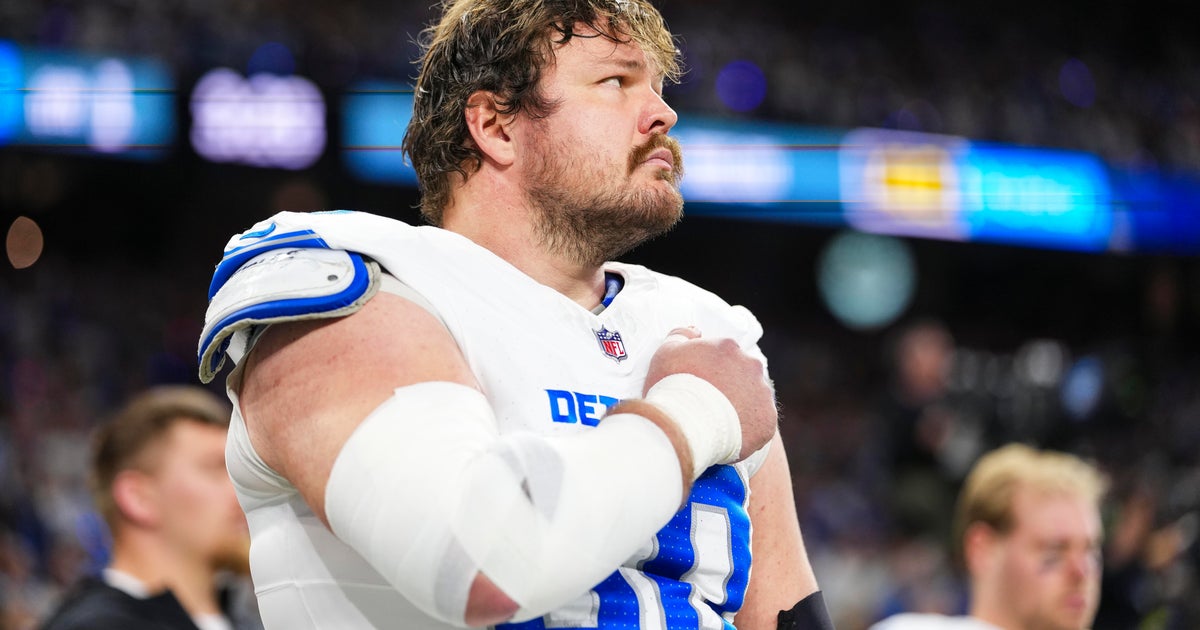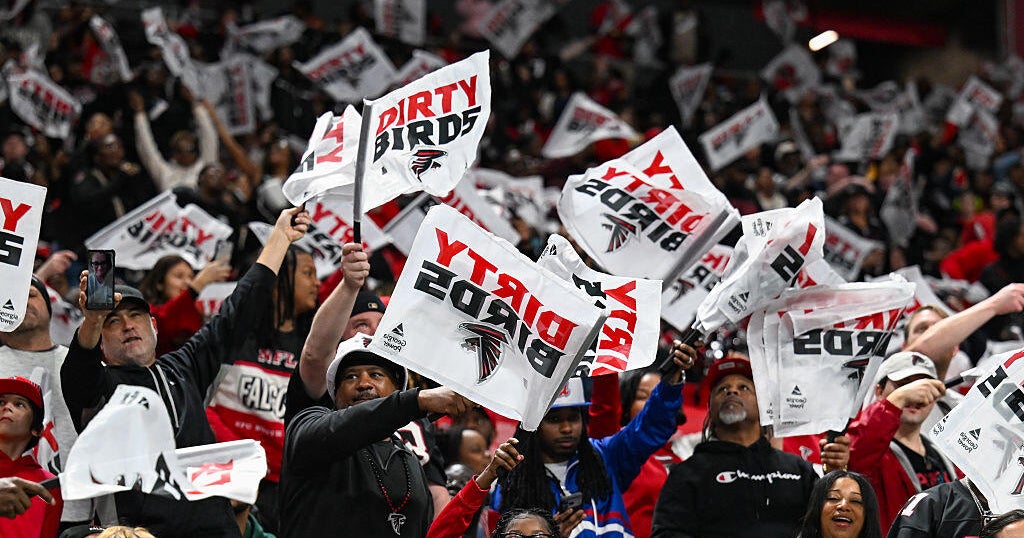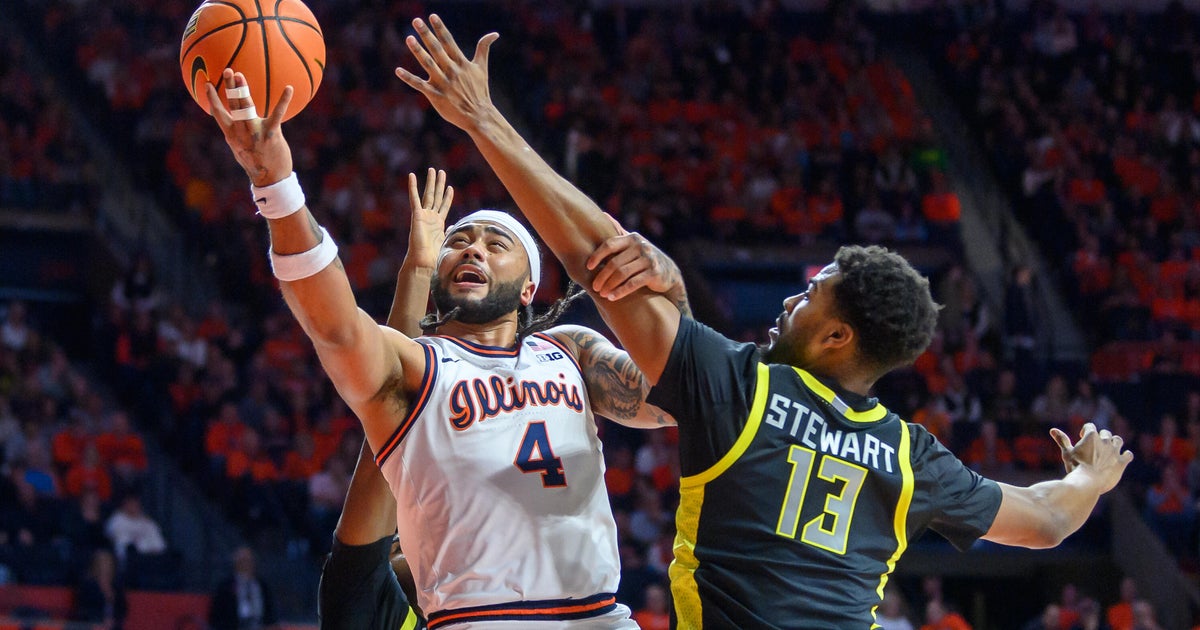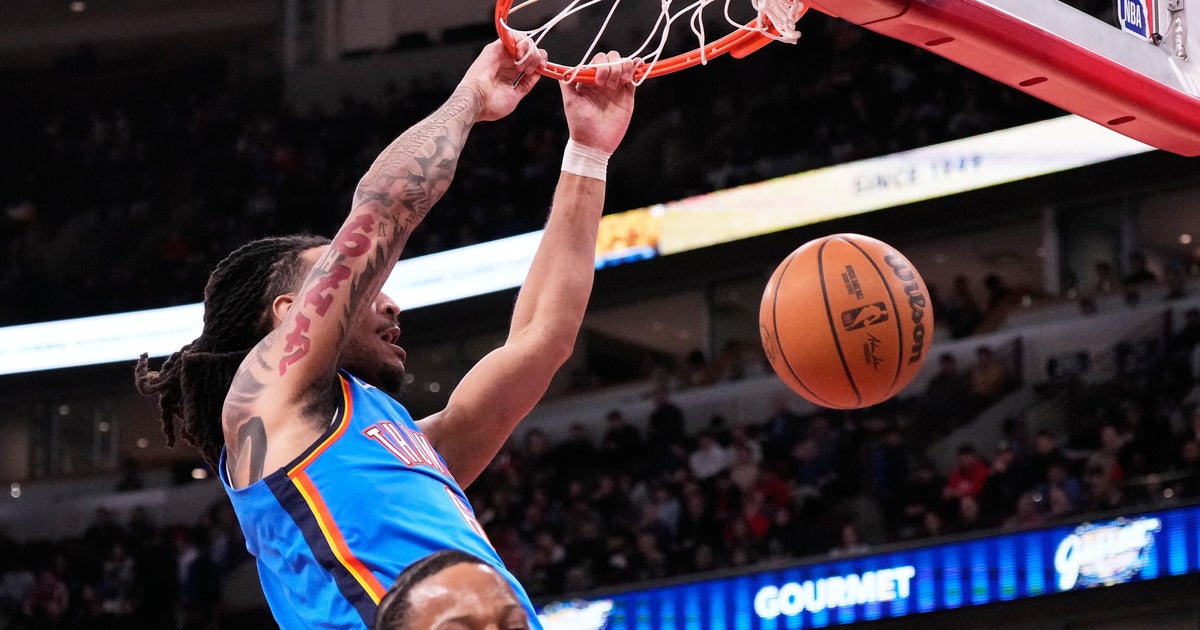Bobby Orr's Blackhawks Career Could Be Warning For Peyton Manning In Denver
BOSTON (CBS) -- By all accounts, Peyton Manning will be introduced officially as a Denver Bronco on Tuesday afternoon, the recipient of a shiny, new contract worth $96 million over five years. By many accounts, the soon-to-be-36-year-old will be his old self, and he'll take the 8-8 Broncos to the next level, leading them to Super Bowl glory and allowing John Elway to rid his franchise of young phenom Tim Tebow.
To that, it's important for everyone to take a long, deep breath of Mile High air and remember that this might not work out.
For one, there is the fact that Manning is old and has not played in the NFL for a year. Any quarterback at any age struggles to get re-acclimated to the speed of the game, and that only gets harder with age. Then there are the stats, which have been the most underreported aspect of the Manning hysteria. Manning was still great in 2009 and '10, but he also threw 33 interceptions in that two-year span. The 16 and 17 picks he threw in those years were his highest totals since 2001, not-so-subtle indications of the beginning of his decline.
Above all, though, there are the injuries. Undergoing neck surgery is no joke. Undergoing two neck surgeries is worse. And three ... and four.
Manning is rejoining a league where hits like this, or like this happen each and every week. The Sports Illustrated story from mid-February paints a very dicey future, saying that Manning's neck injuries may "have reached the chronic stage" and that "the likelihood of further complications [increases] with each new surgery he undergoes."
Perhaps it's fitting, then, that Manning's introduction will take place on March 20, the 64th birthday of Bobby Orr, the greatest hockey player to ever play the game. His No. 4 is iconic in Boston and the entire hockey community, as his name and face have become synonymous with the Boston Bruins.
Though as we know, he did not spend his entire career with the Bruins. After several knee injuries led to several knee surgeries, the Bruins simply could not commit long-term to Orr, who at just 27 years old faced a very uncertain future in hockey. Orr's agent, Alan Eagleson, somehow convinced Chicago that Orr was healthy enough to warrant a $3 million contract (unheard of in those days).
Orr would play just 26 games in three years with the Blackhawks, with more knee surgeries requiring the then-30-year-old to retire from the game. The Blackhawks' hopes of acquiring an otherworldly superstar were dashed. After several seasons of 120 or more points and ratings of plus-80 or better in Boston, the Blackhawks got just 27 points in three years.
And that's why Orr's history should provide at least a cautionary tale for those with high hopes for Manning. Certainly, their situations, sports and eras are different in most aspects, but the similarities remain. The press conference you saw two weeks ago in Indianapolis was as close to real as it gets in a world full of phony PR stunts. Manning loves the Colts, and the Colts love Manning, but the Colts were left with no choice but to move on. It was too risky to pay him the $28 million he was owed, let alone $96 million. It was a decision that could backfire for Jim Irsay and the Colts, but it was one they had to make. To commit that kind of money to a player with as many question marks as Manning could set the franchise back for years. Likewise, the Bruins never wanted to see Orr wear another sweater, but the team could not risk guaranteeing money to a player with chronic injuries that only seemed to worsen by the year.
Also, as strange as it will be for us all to see Manning wearing a Broncos jersey, it will pale in comparison to seeing Orr in the Blackhawks' red sweater, an image that no matter how long you stare at it, just does not look right.
And just like Manning, those injuries didn't prevent multiple teams from lining up to sign the player upon the start of free agency. Sports Illustrated reported in 1976 that the Detroit Red Wings, Kansas City Scouts, Los Angeles Kings, St. Louis Blues and Chicago Blackhawks all met with Eagleson to offer Orr a contract, and when the Blackhawks finally made their multi-million dollar deal, they admitted there was a risk involved.
"It means that we have gambled on Orr playing hockey, and if he doesn't play because of his knee, we pay—and we lose," Chicago GM Tommy Ivan said at the time.
"We have gambled," Blackhawks president William Wirtz also said, per SI. "We have placed our bet down, but at least we have gambled on a thoroughbred."
Somehow, in this Manning Mania, such caution has been thrown out the window (in the form of $96 million). Of course, the Broncos will include language that protects them financially in the event of a major Manning injury, but they're putting much more into the Manning investment than cash. They're trading away an admittedly questionable quarterback, but one who led the Broncos to a playoff victory and reinvigorated the fan base less than a year ago.
They're going all in on Manning, and it might work out. Maybe Manning will be great, and maybe they'll even win a Super Bowl. Just like it is for 31 other NFL teams in March, such an ending remains a possibility.
It's just important to remember that despite the hype and hysteria of the past few weeks, signing Manning is a gamble. The Broncos are going for broke, and they just might end up losing.
Follow Michael on Twitter @michaelFhurley







